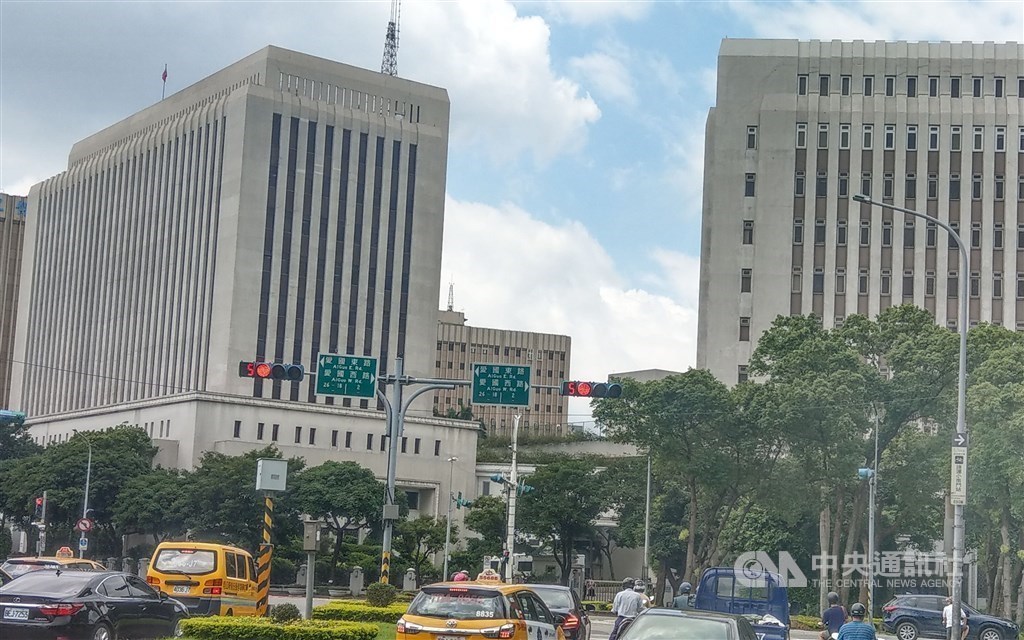Taipei, Aug. 6 (CNA) Taiwan's foreign exchange reserves fell in July, snapping a two-month growth streak, as the central bank stepped into the market
Taipei, Aug. 6 (CNA) Taiwan’s foreign exchange reserves fell in July, snapping a two-month growth streak, as the central bank stepped into the market by selling U.S. dollars to cap the weakness of the Taiwan dollar.
Data compiled by the central bank showed the local forex reserves at the end of July fell by about US$1.15 billion from a month earlier to US$547.81 billion, which is the lowest so far this year.
Tsai Chiung-min (蔡炯民), head of the central bank’s Foreign Exchange Department, said the central bank entered the forex market to assuage the impact from a stronger U.S. dollar and reduce volatility.
According to Tsai, the U.S. dollar index, which tracks the currencies of America’s major trading partners, rose by 1.16 percent in July, when the greenback rose by 0.71 percent against the Taiwan dollar.
The U.S. dollar has gathered momentum as the U.S. Federal Reserve has taken aggressive steps in its rate-hike cycle to take on skyrocketing inflation. Since March, the Fed has raised its key interest rates by 225 basis points, while the local central bank has hiked rates by only 37.5 basis points.
While the euro has plunged by 2.26 percent and the Chinese yuan fell by 0.71 percent against the U.S. dollar, other major currencies such as the Japanese yen and the Australian dollar rose by 2.61 percent and 1.71 percent against the greenback, according to Tsai.
Therefore, the change in the July forex reserves value also reflected the exchange rate movements of other reserve currencies against the U.S. dollar in the central bank’s forex reserves portfolio, Tsai said.
In addition, the change in returns from the central bank’s forex reserves portfolio management was also cited by Tsai as contributing to a change in the month’s forex reserves.
Despite the fall in forex reserves at the end of July, Taiwan retained its status as the world’s fourth-largest forex reserves holder, trailing only China (US$3.07 trillion), Japan (US$1.2 trillion), and Switzerland (US$888.7 billion), according to the central bank.
At the end of July, the value of foreign investor asset holdings of Taiwan-listed stocks and bonds and Taiwan dollar-denominated deposits rose by US$8.6 billion from the end of June to US$537.9 billion in the wake of a 174.34-point increase in the Taiex, the benchmark weighted index on the Taiwan Stock Exchange, the central bank said.
Those holdings represented 98 percent of Taiwan’s total foreign exchange reserves as of the end of July, up from 96 percent at the end of June, the central bank added.
Meanwhile, Tsai said there were no signs that foreign institutional investors had rushed to move their funds out of Taiwan in a panicked manner after China kicked off large-scale military exercises in multiple locations around the island on Thursday in response to a 19-hour visit by U.S. House Speaker Nancy Pelosi which Beijing had strongly opposed.
The central bank has said it will maintain ample forex reserves to ensure that domestic financial markets remain stable, as well as to guard against any sudden withdrawal of funds from the country by foreign institutional investors.
Separately, the Financial Supervisory Commission (FSC), the top financial regulator in Taiwan, said in a statement that foreign institutional investors registered a net fund outflow worth US$5.075 billion, marking the largest net fund outflow so far this year.
The July figure marked the second consecutive month of a net fund outflow, the FSC said, adding the accumulated net fund outflow surpassed US$7.6 billion in the two months, citing a wider gap in interest rates between Taiwan and the United States.
Since the government lifted a ban on foreign institutional investments in the local bourse at the end of 1990, foreign institutional investors have accounted for an accumulated total of about US$218.35 billion in net fund inflows into Taiwan as of July, the FSC data indicated.
focustaiwan.tw
